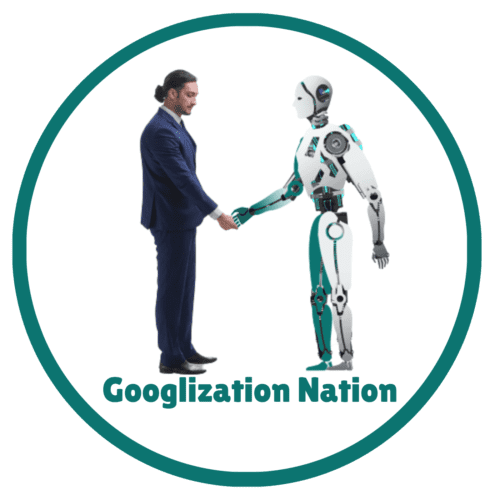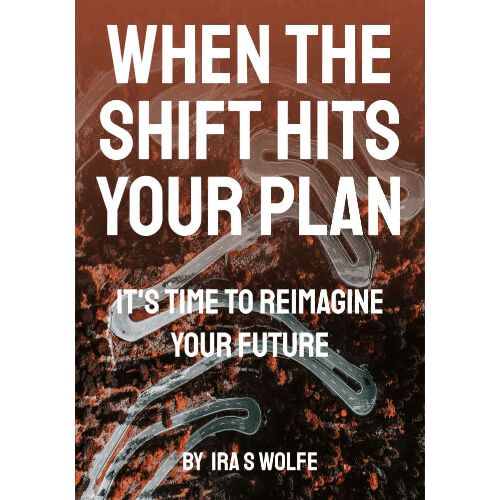DIVERSITY & INCLUSION 2021
Drop the Excuses, Table Fragility
An Interview with Torin Ellis
SEGMENT #1 – TORIN ELLIS
Torin Ellis isn’t into spreading fairy dust. Passionate, relentless, a force to be reckoned with, inspirational, a man with a purpose. Torin Ellis – author, SiriusXM radio host, and D&I Talent Strategy expert – joins this week’s episode of Geek Geezers Googlization. You’ll hear nothing but a no-hold-back conversation about equity, social justice, and inclusion 2021.
SEGMENT #2 – AHEAD OF THE CURVE
Given the weight of the conversation with Torin, we opted to shift gears a bit. Our segment co-host Joyce Gioia. guest co-host Keith Campagna and Ira Wolfe continued the conversation about diversity, inclusion, equality, empathy, and culture.
LISTEN, WATCH, SUBSCRIBE
Quotes
[9:58] “If nothing else shows you what we can do, well, we did it this week: we have people in outer space, yet again, and we are still struggling.”
[10:22] “We just need to drop the excuses and figure out how to do the work.”
[11:50] “Before we are a leader, we are an individual. It starts with the individual.”
[15:52] “The only reason we haven’t done it is because we haven’t made it a priority.”
[16:39] “Too many organizations just want to put a band-aid on it and do unconscious bias training and call it a day. That’s a waste of time.”
[23:30] “If in fact we really care about doing better, we will table our fragility.”
[29:02] “The bottom line from this conversation is that we all have to be more active. Look back, take inventory, and then figure out how you show up differently and more because humanity is what’s important.”
Podcast Notes
Is 2020 really different than the past? [8:15]
[10:22] “We just need to drop the excuses and figure out how to do the work.”
Social unrest and calls for inclusion and equity are nothing new to America. In fact, many of us have lived through other periods of huge upheaval in our society, but we are still living with some of the same problems we have had forever!
So, is anything really different this time around, or is this just the same story on a new day? Only time will tell, says Torin, but just looking in the short term, things are looking better than they ever have before. Companies and individuals seem to be taking this movement more seriously, technology is enabling the fast communication needed for real change, and there seems to be plenty of momentum.
However, perhaps the biggest threat we see to this movement is the complacency of white people and the fatigue of Black people. It’s not a new problem, and we are certainly capable of creating an inclusive and equitable society. Just look at the news from this week–we have people in outer space again!
Where diversity and inclusion can start [11:12]
[11:50] “Before we are a leader, we are an individual. It starts with the individual.”
Diversity and inclusion, if it is to be made a reality in the business world and our society, has to start somewhere at the top, from the leaders. But leaders, before they are leaders are individuals, and real, lasting change has to start with the individual. Based on each individuals’ circumstances and conditions, they start to make a culture. This culture and their mindset can either foster diversity, equity, and inclusion, or it can stand in the way.
But this idea that change starts with the individual works both ways. While it is absolutely necessary for leaders to drive change from the top, it is the responsibility of every member of an organization to own their own roles fully. Every individual, after reflecting on where they have fallen short, is responsible for making the changes they need to make in order to create a just workplace.
The slow response to social injustice [14:11]
[15:52] “The only reason we haven’t done it is because we haven’t made it a priority.”
The response to COVID-19 was almost immediate. The issue was identified, various safety measures were put in place, and we worked together to defeat the common threat. Discrimination, exclusion, and social injustice are all very real threats to our society as well, but our response to them has been slow and ineffective.
The pandemic even totally transformed workplaces in a matter of weeks. If we can do that in response to a pandemic, why can’t we do that to create safe and inclusive workplaces and high-performing teams? The answer is that we certainly can completely rethink hiring processes, team building, learning and development, corporate social responsibility, and every other value point within organizations.
The reason no real change has been made is not because it’s impossible, but because it hasn’t been made a priority. Too many organizations want to do the minimum requirements, like unconscious bias training, and call it a day. But that approach will never lead to lasting change.
Making difficult changes [18:15]
[23:30] “If in fact we really care about doing better, we will table our fragility.”
One obstacle in the way of making real, personal change is the hard work of unpacking personal biases and prejudices. This process can often cause people to feel attacked. However, Torin emphasizes two things: love and process. Understanding the love behind the changes will help process the changes in a positive way.
One of the most difficult parts of these changes is that it is ongoing. No one is ever done working on becoming a better human. It is a constant process that requires reflection, understanding, learning, and practice to make real changes.
On top of this, there is the constant risk of making mistakes along the way. But making mistakes is almost guaranteed since there is so much to learn. Rather than letting the fear of making a mistake prevent you from diving into the work of being a better person, embrace the inevitability of making mistakes and be prepared to own them.
Spreading the message [24:49]
It is not enough, though, to only work on yourself as an individual. To work towards a truly just society, we are all obliged to get others on board. The first step is to share this podcast and any other resources you use with friends, family, and colleagues, and encourage them to really engage with them.
Beyond that, business leaders and influencers must take responsibility for fixing their practices, if only for the fact that racism has led to a $16 trillion loss in GDP over the last 20 years. If nothing else, this finding must be shared and used to spark change.
Ahead of the Curve: Normal 2.0 [35:22]
Given the weight of the discussion with Torin Ellis, it seems appropriate to examine what each of us can do to support changing the world. As Ellis said, the work of creating a diverse and inclusive society begins with individuals. It all starts with unpacking unconscious bias. No matter how long that process takes, it is the necessary first step in becoming a better person.
Joyce Gioia shares that for her, this work includes volunteering time to support people with different backgrounds than hers. For each of us, even if it’s just reaching out to people in our communities, we have to find our own way to genuinely engage in the work of justice outside of ourselves.
The key to all of this is listening. Listen to yourself and your strengths and shortcomings, listen to people explaining their struggles, and listen to people trying to help you. Listen with your ears, your eyes, and your heart.







